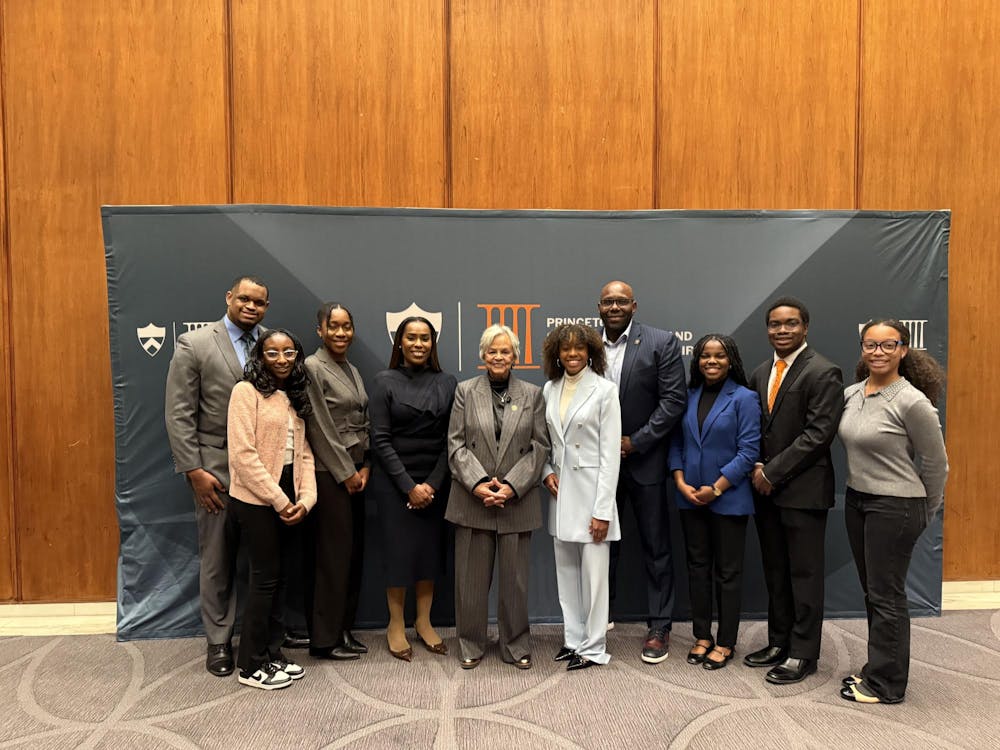It is a moral imperative to put the well-being of patients above personal concerns in abortion cases, Willie Parker, a physician in practice at the sole remaining abortion clinic in Mississippi, said in a lecture on Wednesday.
Current social trajectories are unsettling, Parker said, noting that in a country where one in three women will pursue abortion during their lifetimes, restrictions against the procedure are becoming increasingly stringent.
In Mississippi, recent laws have mandated women to receive counseling, accept ultrasound exams and, for minors, obtain parental consent before they can step into an abortion clinic.
“Women don’t have the health care called abortion,” Parker said.
Born in Birmingham, Ala., Parker grew up with five siblings all raised by a single mother. Though never pronounced, the prejudice and stigma against abortion were well-visible in Parker’s community.
“I was raised a fundamentalist Protestant and took my religious belief and understood it seriously," he said. "Though I had no explicit teaching, I saw that teens and single parents were forced to parent regardless of whether they’re ready."
During his foundational years, Parker became inspired by Martin Luther King Jr.’s speech on good samaritans and described the civil rights leader’s words as “a come-to-Jesus moment.”
Nonetheless, the decision to accept employment in an abortion clinic was not easy for him, he said.

“When I got the call to work in Mississippi, I said two things," Parker said. "The first was no. The second was hell no."
As Parker drove through Mississippi after receiving the offer and traveled along roads marred by the violent expressions of racial tension, however, he said he was reminded of the countless women who were struggling for civil and reproductive rights.
“When you wrestle with your conscience and you lose, you actually win," he said. "I wanted to make my contributions for women to gain accessibility.”
Knowing the first hand realities of poverty and its translation to a deficiency in healthcare, Parker said he proceeded to Mississippi, one of the poorest states in America where 20 percent of the population is below the poverty line. As expected, he said, he was greeted by many unwelcoming eyes as he began his practice.

“There is clinic sabotage, but I do not want to be distracted," he said. "If I cannot make women a priority, then who will?”
Ultimately, liberalizing abortion is safeguarding a woman’s right to choose how to live her life, he added.
Parker also addressed the "black genocide" problem, which he described as a “stratagem” invented by pro-life activists proposing that abortion is decimating the black population.
“While the legal battle of abortion is occurring at the state and local level, the cultural battle is being fought alongside these ideological wars," he said. "Many say that black babies are an endangered species as if mothers are totally detached from the babies that they are carrying."
“ 'Black genocide' is a racial insult, it is a parochial effort to control all women to paralyze the proponents of abortion,” Parker added.
Parker cited deploying resources to women in need, expanding capacity for women to pursue abortion, and “making sure that there is a competing a narrative” as steps to pursue for reproductive justice.
During the student question and answer period, a student who identified herself as a sophomore recounted her experience of getting an abortion.
“I never thought until I got there that I’d have an unplanned pregnancy," she said. "I know that abortion is highly stigmatized, and it’s often not until that moment when you can truly feel empathy."
Parker applauded the female student for speaking up and noted the gap in empathy he witnessed while working in Jackson.
Christian Say ’16, a member of Princeton Pro-Life, said he was disappointed by the choice of speakers.
“There will be no protest here," he said. "But with that said, I am very disappointed by the University’s decision to represent you as the University’s stance, calling the event a lecture on reproductive justice and refusing to acknowledge that there’s only one view presented."
In response, Parker noted that he welcomes disagreement and expressed that there’s uncertainty as to the point at which the agency of people should be honored.
“Suppose you were to believe, as I and many in this room do, that abortion amounts to murder," asked another person who self-identified as a member of Princeton Pro-Life."How would you act if you believe that?”
“I wouldn’t be in my job if I did hold your views," Parker said. "But I don’t.”
The lecture took place on Wednesday at 4:30 p.m. in Dodds Auditorium.
Correction:Due to a reporting error, an earlier version of this article incorrectly transcribed a quote said by the student who self-identified as a member of Princeton Pro-Life.The 'Prince' regrets the error.







